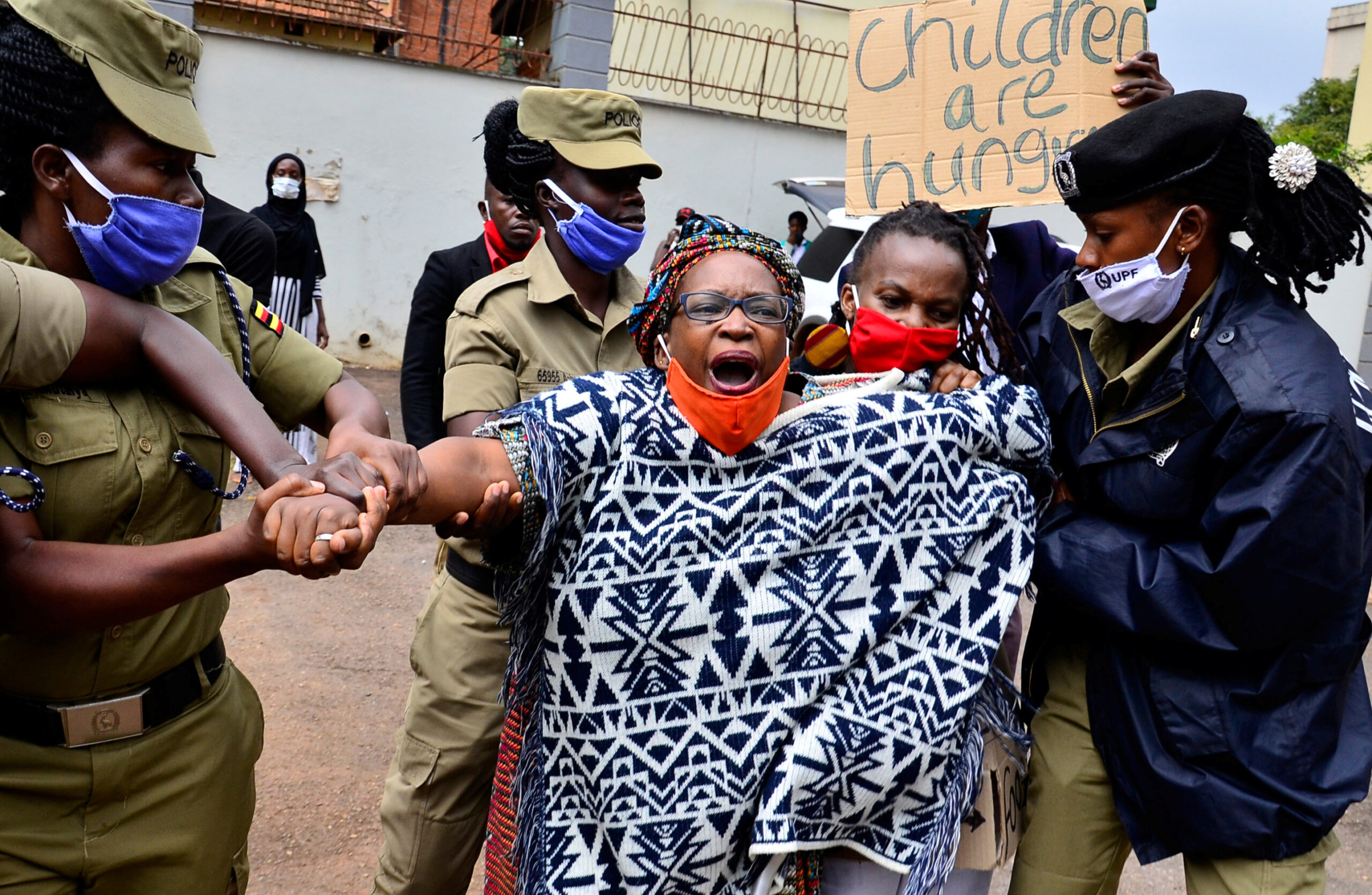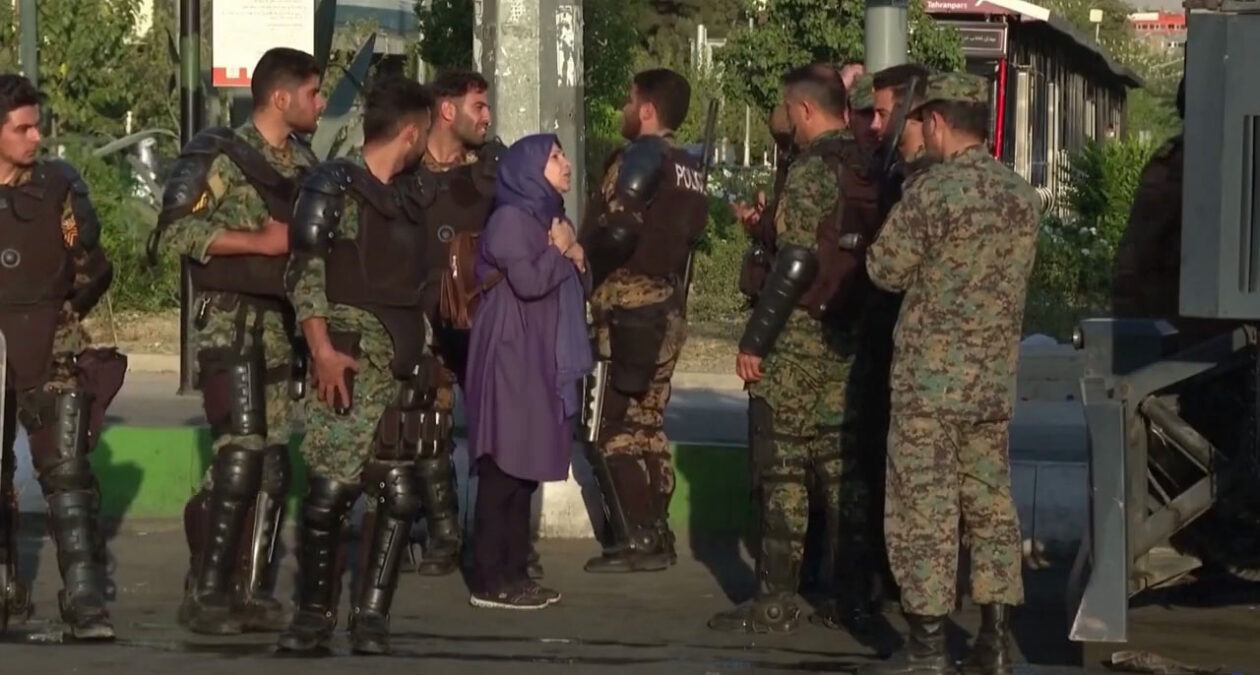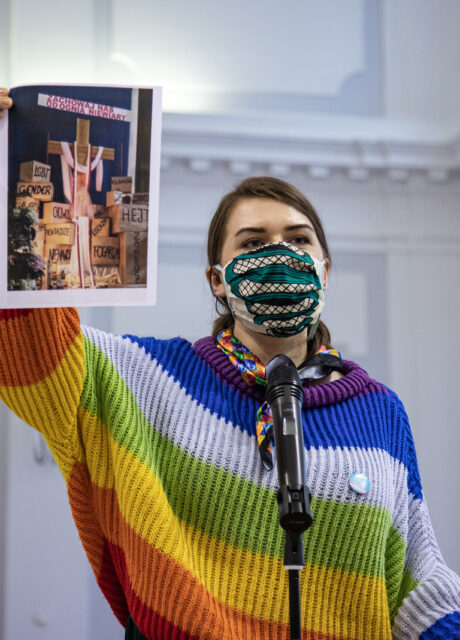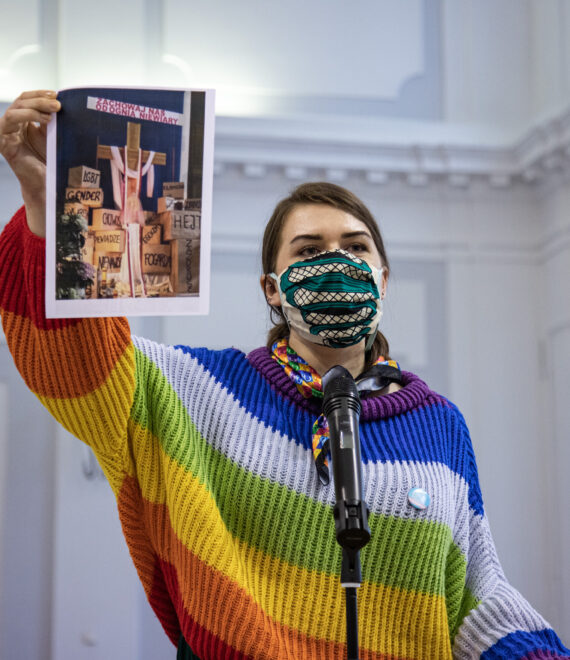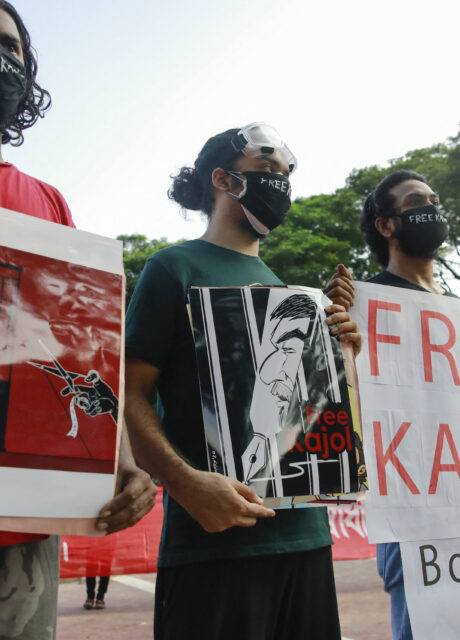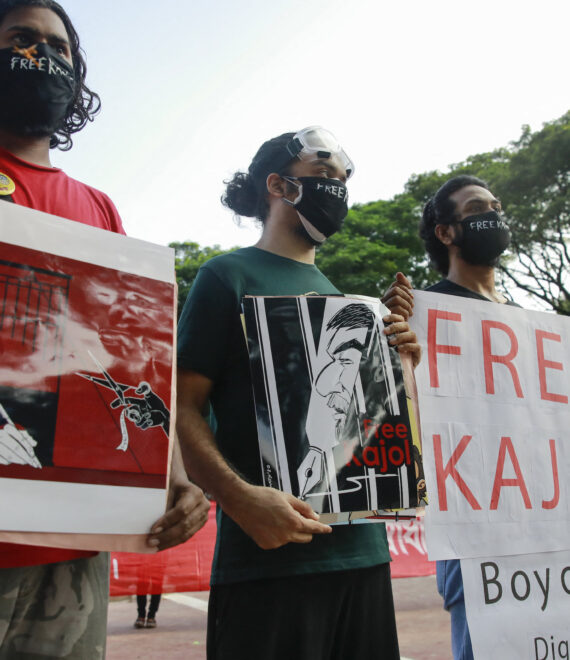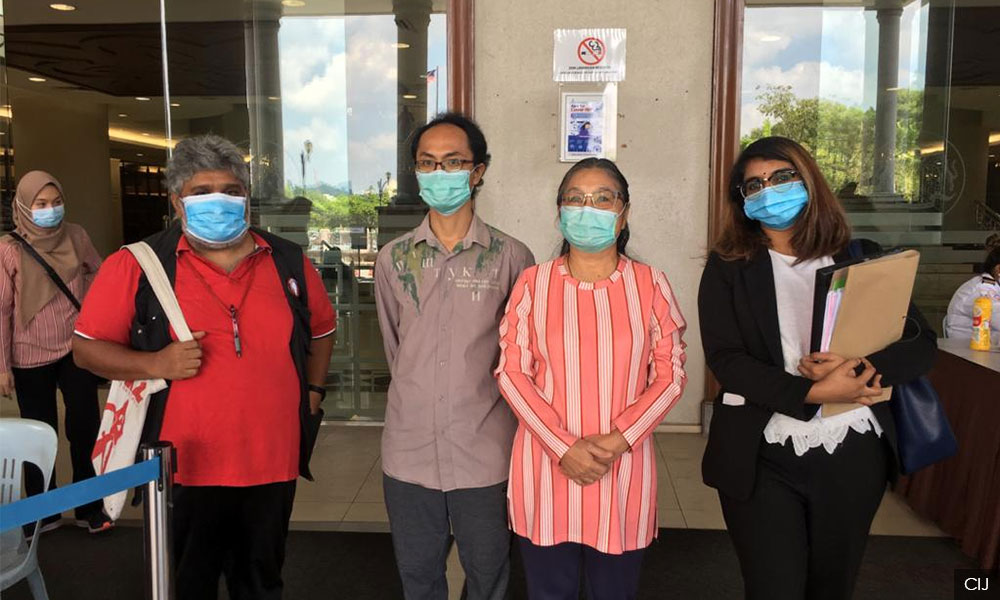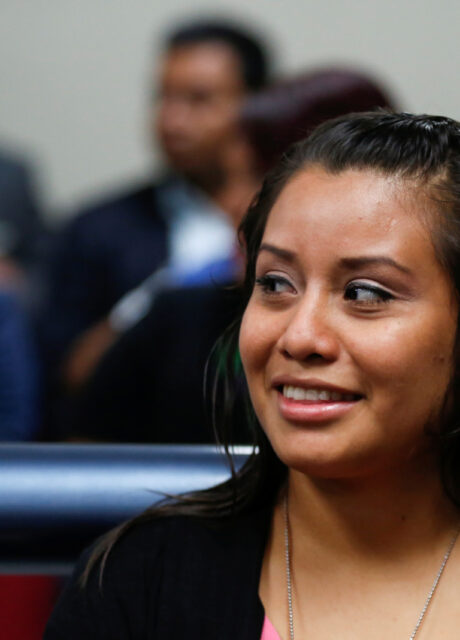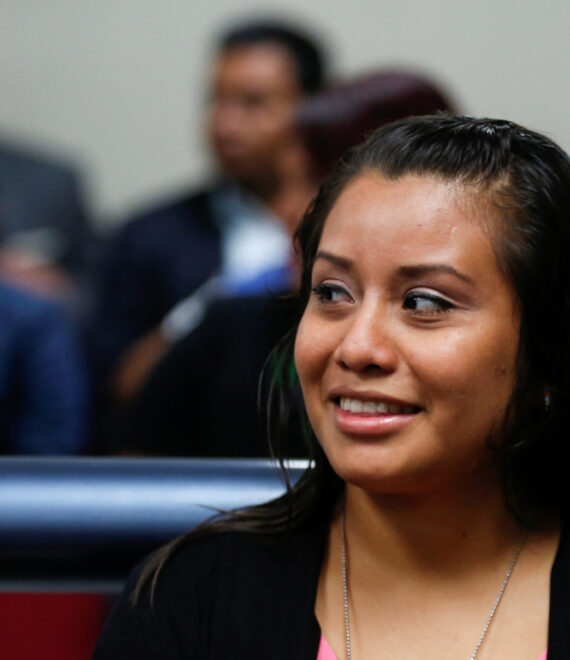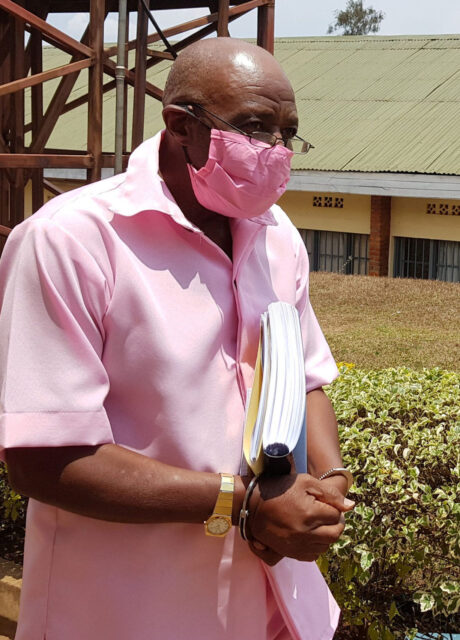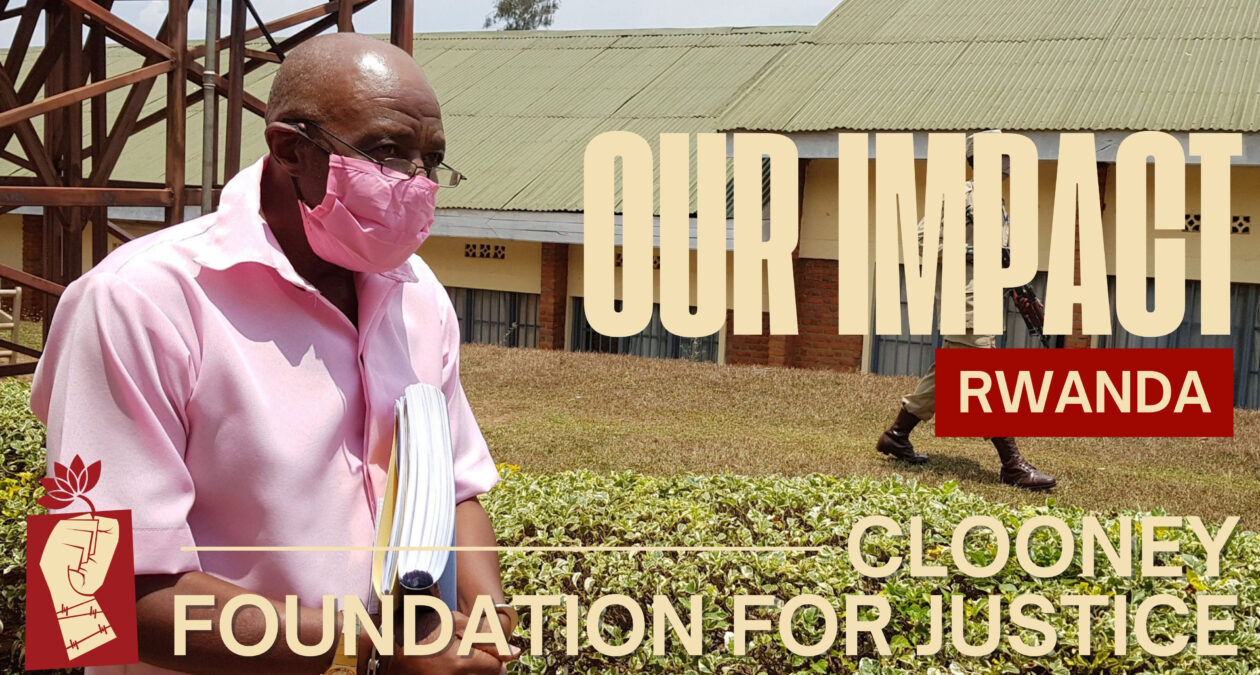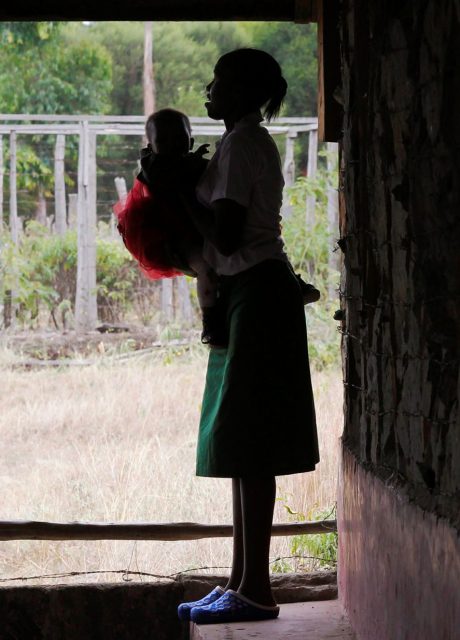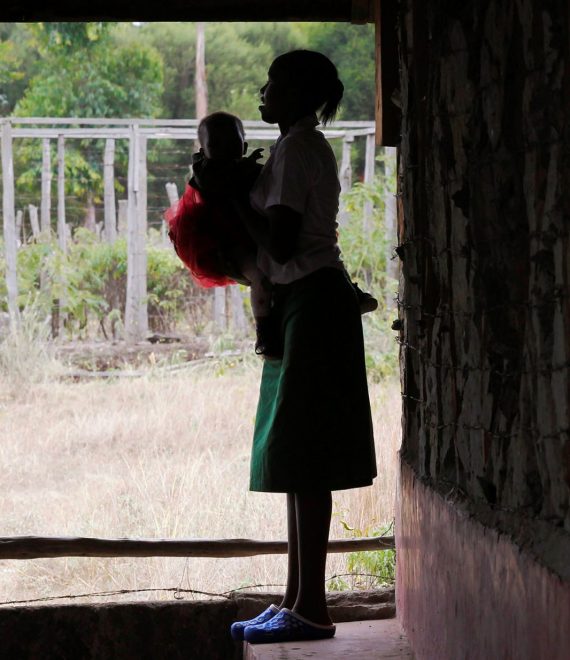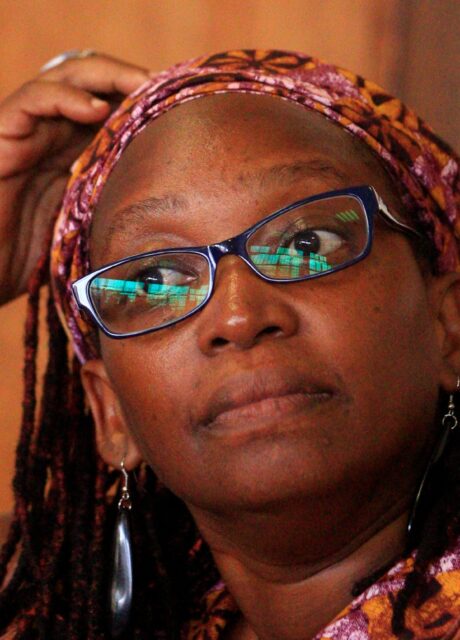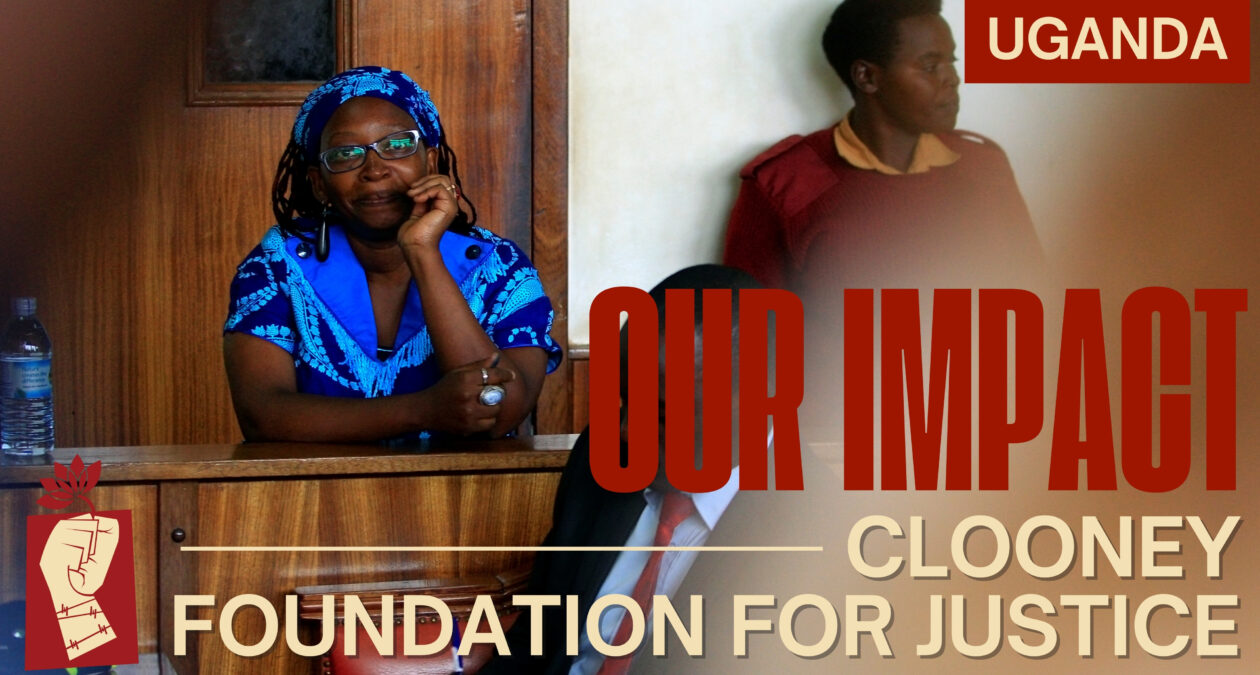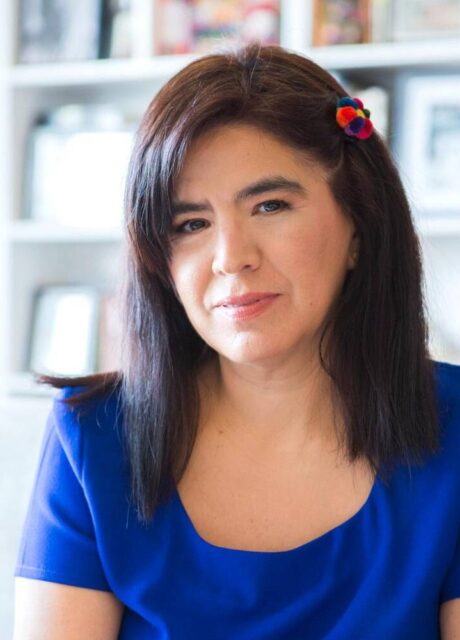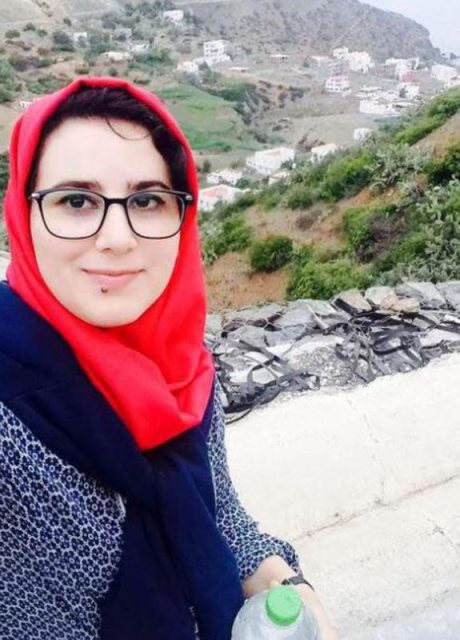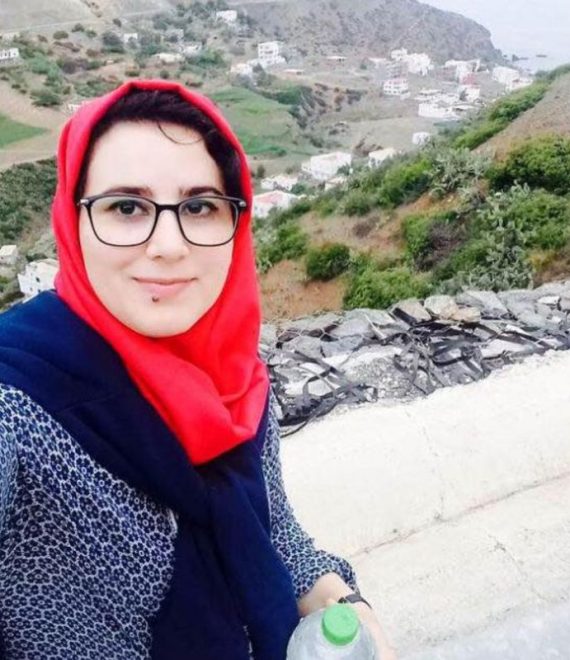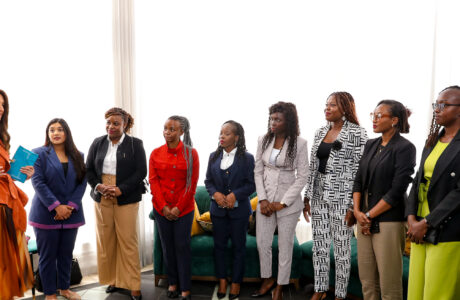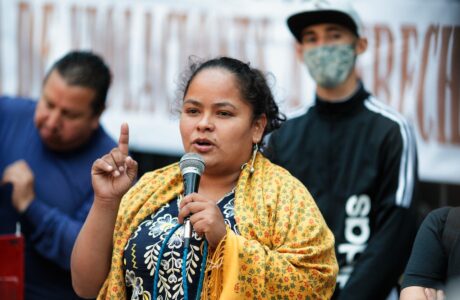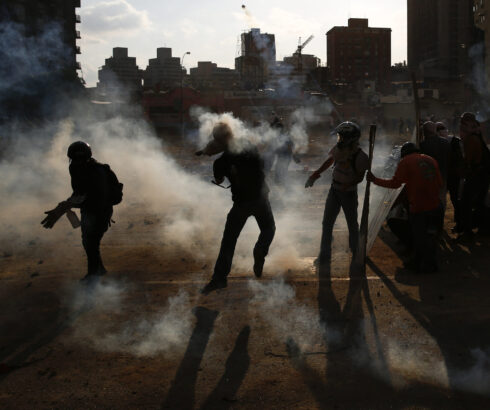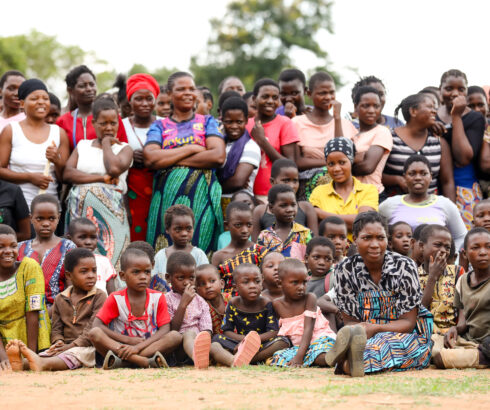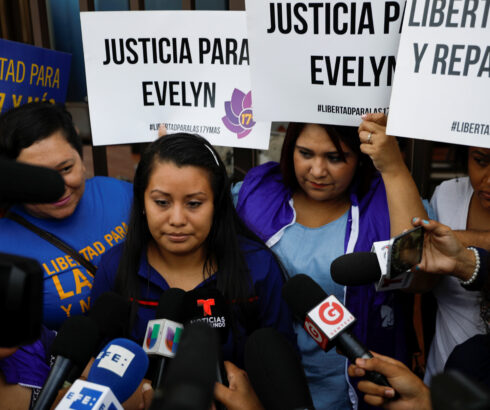Around the world, women and girls face injustice and violence simply because they are women. The justice system is supposed to protect women, but all too often courts perpetuate discrimination, or remain beyond the reach of those in need.
Our TrialWatch initiative systematically monitors trials against women and girls and works to free them from jail. Our Waging Justice for Women initiative aims to fight injustice against women through strategic litigation to reform discriminatory laws and increase accountability for gender-based abuse.
Child marriage, which remains legal in over 100 countries, robs girls of their childhood and futures. Unjust and outdated “morality laws”, such as in Iran, criminalize things as basic as showing your hair. Anti-abortion laws prevent women from accessing basic reproductive healthcare.
CFJ’s work is responsive to emerging conflicts across the globe, where time and time again we see women bearing the brunt of violence, and girls forced to lead the charge for their rights.
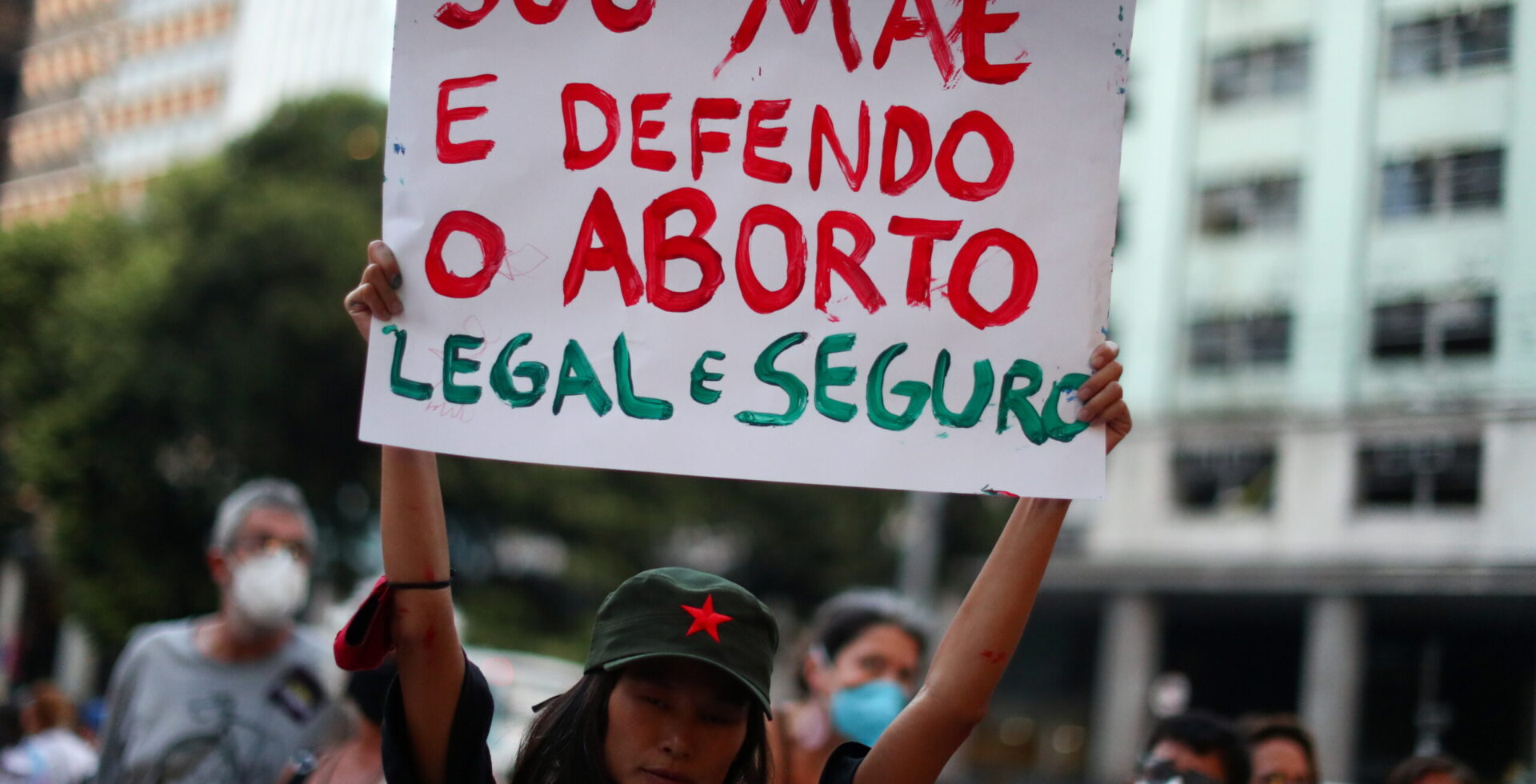
CFJ is dedicated not only to helping women and girls secure justice but empowering them to understand their rights and how to fight for them within their own communities.
Along with our key partners, our Waging Justice for Women initiative is working to help women and girls in Africa claim their rights – from the right to go to school, to be safe from violence , escape child marriage and have equal rights to property. We are also investing in the next generation of gender justice champions through our new fellowship program for young lawyers across Africa and the opening of our first women-for-women legal aid clinics in 2023.
Did you know
Amal Clooney has successfully defended victims of sexual violence in Malawi and Kenya, including vulnerable women working on tea plantations, in mass claims against their employers.
Women and girls who report rape, harassment, or domestic violence; who have abortions or miscarriages; and who fail to adhere to strict and out-dated gender stereotypes are all unjustly targeted with criminal prosecutions.
Activists who speak up to defend women’s rights are also subject to sham prosecutions. TrialWatch systematically monitors trials against women and girls and their advocates, using findings from the courtroom to secure their release from prison and change archaic laws that facilitate this discrimination.
We have intervened in cases from Cameroon to Kyrgyzstan to El Salvador to stop gender-based prosecutions in their tracks and ensure that women’s and girls’ rights are protected.
Did you know
CFJ Co-Founder Amal Clooney has represented Yazidi women in the only cases anywhere in the world in which ISIS fighters have been convicted of genocide. She also recently represented 126 victims of genocide in Darfur at the International Criminal Court, including many female victims of sexual and other types of gender-based violence.
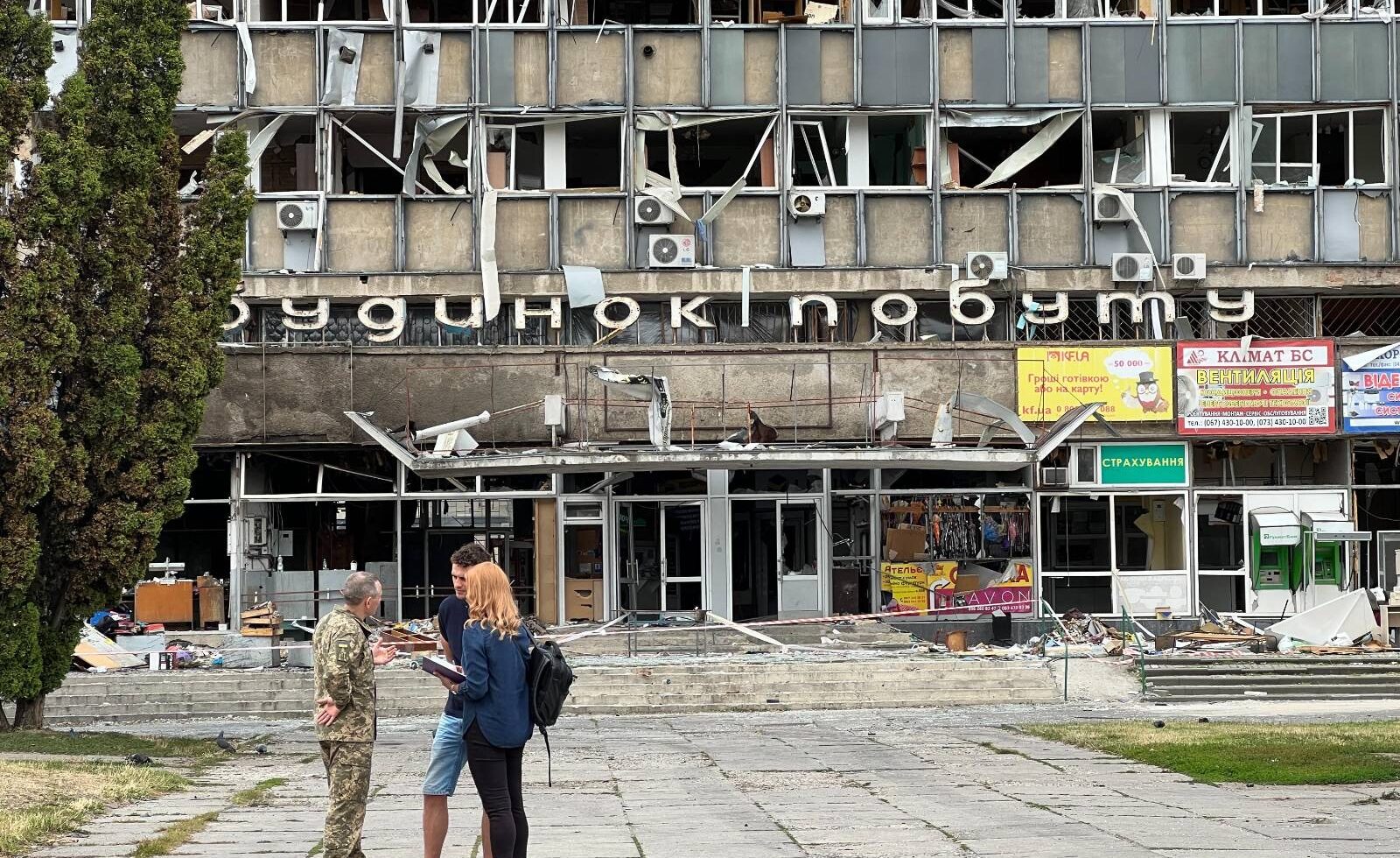
All over the world – from Ukraine to Syria to Iraq to Darfur to Myanmar – CFJ has been instrumental in bringing perpetrators of gender-based violence to justice. Our team at The Docket carries out in-depth investigations into international crimes and mass atrocities around the world, including investigating sexual and gender-based violence. The team also speaks to women and girls who are survivors of other international crimes, such as extra-judicial executions, torture, or enforced disappearances, and gathers evidence to trigger prosecutions against the alleged perpetrators of those crimes.
The Docket recognizes that mass atrocities can impact women and girls disproportionately. This is why the Docket ensures female survivors are represented in cases brought to international courts and violations against them are part of the record. This ensures women and girls are at the forefront of accountability efforts and justice for survivors.
